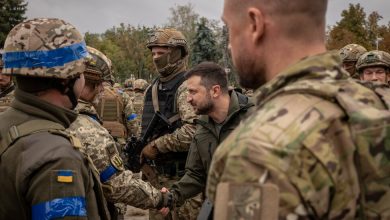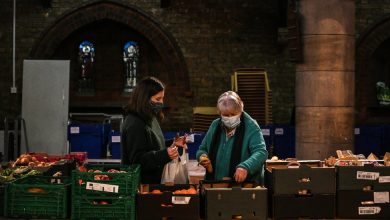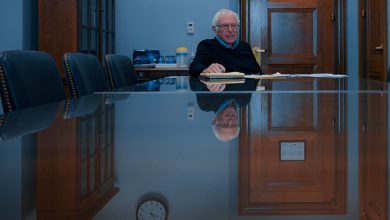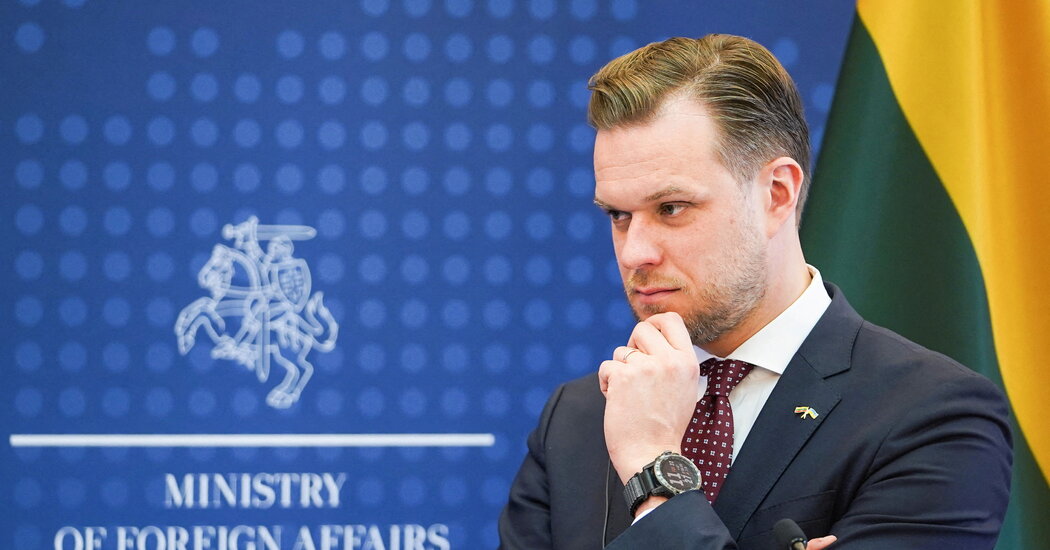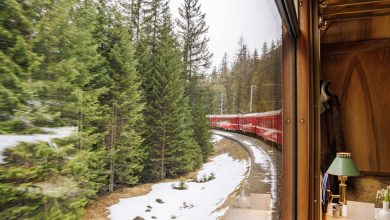‘There Must Be More Room for Africa,’ Leader of African Union Says
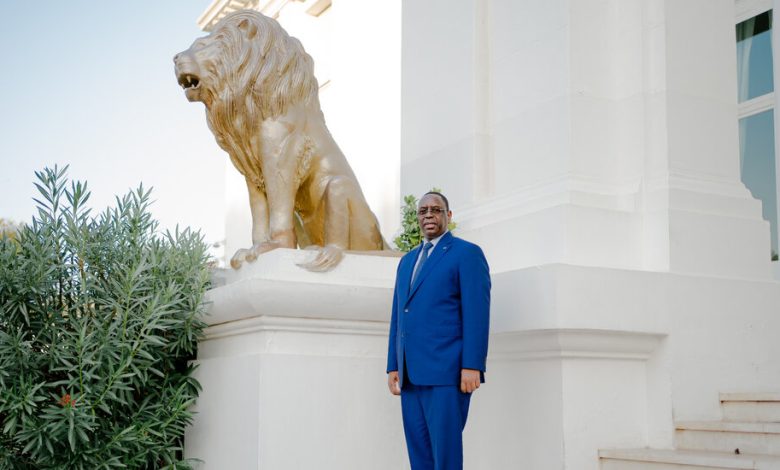
DAKAR, Senegal — Since he took the helm of the African Union, Macky Sall, who is also president of the West African nation of Senegal, has been making the argument that Africa does not have the influence it warrants in world affairs.
Africa is still “confined to the margins,” he said at the United Nations General Assembly in September.
But as he prepared to make his case again at the U.S.-Africa Leaders Summit in Washington this week, it appeared that at least part of his message had been heard: A White House official said President Biden would support a permanent spot in the Group of 20 major economies for the African Union.
In the presidential palace in Dakar last Thursday, surrounded by paintings and sculptures of Senegal’s national symbol, the lion — as well as what looked like a real stuffed lioness — President Sall laid out what Africa hoped to get out of the summit.
(This conversation was edited and condensed for clarity.)
Tell me about your vision for a new international order, in which Africa is no longer sidelined.
This is a vast continent, with 1.4 billion inhabitants and a GDP of $2.7 trillion. But Africa is still at the periphery. When we’re deciding the world’s fate, there must be more room for Africa. At the G20. At the United Nations Security Council.
We need to consolidate the relationship between Africa and the rest of the world, especially with developed countries. Developed and developing countries need to communicate more. That’s my fight. We must be part of solutions and not just a subject, a topic of discussion.
And is the G20 ready to give the African Union a seat? Is the U.N. ready to give Africa a permanent seat at the Security Council?
For the G20, I think it’s on track. Already, we have significant support. France, China, Russia and Saudi Arabia have already given their support.
The State of the War
- Avoiding Questions: President Vladimir V. Putin will not hold his annual December news conference. The move comes as Russia’s economy falters and follows a series of military setbacks in Ukraine.
- Splintered Loyalties: The town of Sviatohirsk, in Ukraine’s east, is divided by where people’s allegiances lie: with Moscow or Kyiv.
- Brittney Griner’s Release: By detaining the athlete, the Kremlin weaponized pain and got the United States to turn over a convicted arms dealer. Can the same tactic work in the war?
- Weaponizing Winter: Russian attacks on Ukrainian infrastructure have left millions without power, heat or water as the snow begins to fall. The Daily looks at what life is like in Ukraine as winter sets in.
For the United Nations Security Council, the debate is more difficult. In Africa, we are 54 countries. We want two permanent seats with the right to veto. That’s our position.
The current system was defined in 1946. It’s time we looked at the current global configuration. Today’s world cannot continue to function as in 1946. Almost the entire African continent, with the exception of Ethiopia, was under colonization then. We had no freedom.
We are asking for inclusive governance. Otherwise, the system will no longer be credible. But those who must accept it are, first of all, the five permanent members who have the privilege of the right of veto. It’s difficult. But representation needs to be improved.
Mr. President, how do you think this could work? Would a permanent seat at the Security Council —
Two seats!
Two seats. Would they be given to Nigeria, for example, as Africa’s biggest country?
We’re not there yet. It is up to Africa, once it has its seats, to define the modalities of representation. There are several hypotheses. It makes no sense to give them to a particular country. We will have fought for nothing, because the country will represent itself, not Africa. Afterward, between Africans, we can look at what is the best way of representation that makes it possible to defend the interests of the continent. First, we’ll have the seats, then we’ll discuss how to occupy them.
I believe after your remarks at the U.N., President Biden said he supports your call for a Security Council seat — I think he said one, not two.
He can say one seat. I say two seats. It’s a negotiation. [Laughs]
How do you think the president and his government can best support Africa in its fight to move beyond the margins?
I think the president has this desire to work with Africa. It’s clear. Once, he told me that if he is president, it’s largely thanks to the African American vote. That’s something he has in his heart.
But we need more concrete things, and the United States as the world’s most powerful country can stimulate this, if there is the political will. They need to agree to invest a little more in the continent. Not aid, but investment. We’re not asking for handouts. What we are asking is to be able to access markets, and that there is not too much tension resulting in increased prices of wheat, of fertilizer, as we have experienced this year. This forced our states to subsidize, when we’re already suffering a lot from Covid and from the war in Ukraine.
What would success at the Washington summit look like?
Success would be for the United States and Africa to work on a concrete program to offer food security, to help Africa to be self-sufficient through public-private investment funds, to help modernize agriculture in Africa and to develop infrastructure: energy, roads, railways and irrigation. Certainly, we’ll need a little money, but first, there must be the will to work with Africans.
What can the United States offer Africa that other partners — like China, Russia or Turkey — can’t, and vice versa?
What, for example, China does that the West does not do in Africa is — it’s one of the few countries that funds basic infrastructure. Roads, railways, major infrastructure. The other [Western] countries did it for a long time, but 30 years ago, they stopped, and now the focus is on financing software, governance, defense, gender. Education and health too. Financing vaccines, health and education is an excellent thing. But at the same time, Africa needs roads, railways, energy.
When it comes to Ukraine, do you think that world powers are asking African countries to pick sides? And you have yourself spoken to Vladimir Putin; how do you think this war could end?
This war must end. For us Africans, that’s the most important thing, not aligning ourselves behind Russia or Ukraine — even if we’ve said that countries’ borders must be respected.
With President Zelensky [last week], I spoke at length about [the initiative] Grain from Ukraine. We told him, ‘That’s a great thing. We will continue to work with you. But talk, agree to a cease-fire, work for peace.’
In the end, saying that Russia is guilty does not solve the problem. Beyond naming a culprit, the war must be stopped. Everyone is suffering today. We see all the consequences of this war on the standard of living, on the price of hydrocarbons, oil, food. So stop it.
You are often criticized here in Senegal for not confirming that you will not run again as a presidential candidate in 2024. Do you hear those criticisms?
It is normal for me to be criticized in my political action, not just in my work as president.
It is clear that today there is no legal debate [over whether or not he can run again]. Now, whether I’m going to be a candidate or not, it’s my decision.
Have you decided?
When I decide, I’ll let the Senegalese people know.

